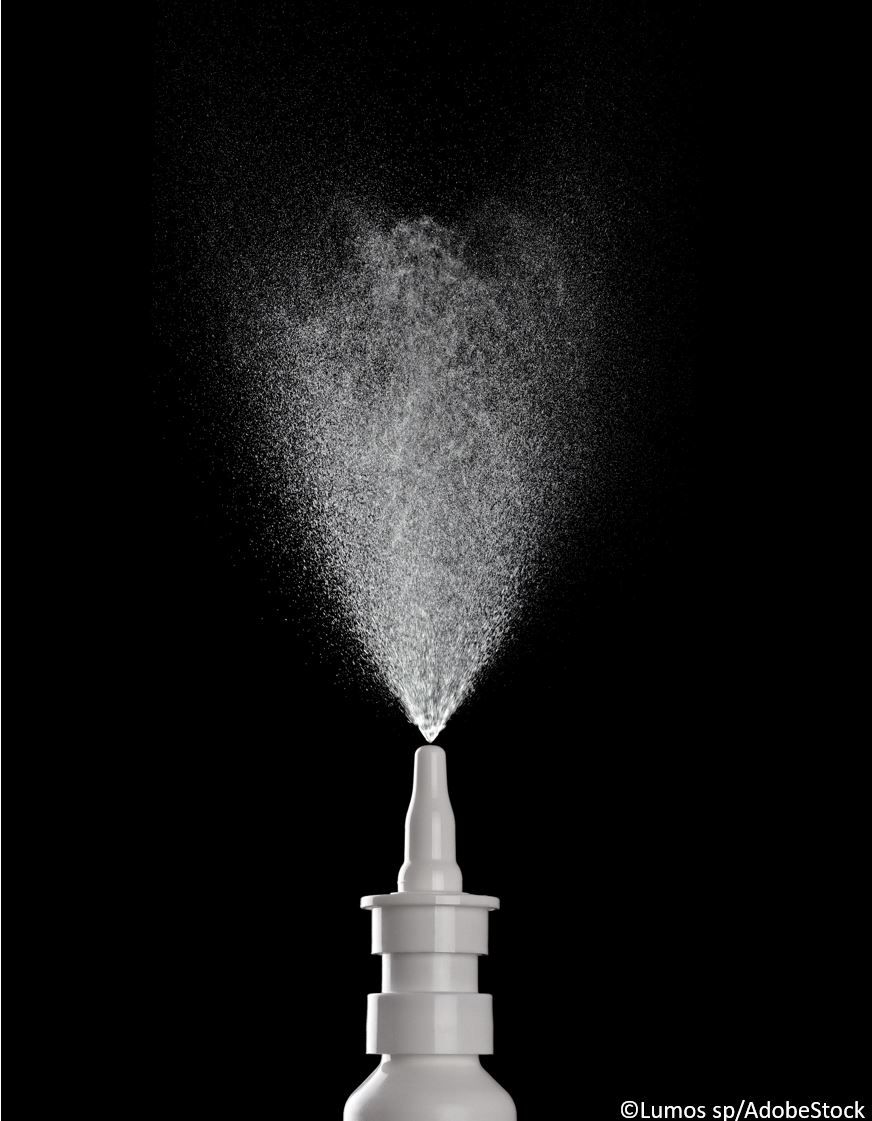- Clinical Technology
- Adult Immunization
- Hepatology
- Pediatric Immunization
- Screening
- Psychiatry
- Allergy
- Women's Health
- Cardiology
- Pediatrics
- Dermatology
- Endocrinology
- Pain Management
- Gastroenterology
- Infectious Disease
- Obesity Medicine
- Rheumatology
- Nephrology
- Neurology
- Pulmonology
Investigational Nasal Spray Found Safe, Effective for Self-Treatment of Paroxysmal Supraventricular Tachycardia
Etripamil 70 mg nasal spray restored heart rate within 30 minutes in approximately 60% of PSVT episodes, report authors of new study.

An investigational fast-acting nasal spray was found to be safe and effective for patients self-treating recurrent episodes of paroxysmal supraventricular tachycardia (PSVT) during long-term follow-up, according to new research published online today in the Journal of the American Heart Association.1
In an open-label extension trial including patients from the phase 3 NODE-301 study, researchers found that etripamil—an intranasal L‐type calcium channel blocker that is being considered for approval by the US Food and Drug Administration—was associated with approximately 60% conversion of PSVT to sinus rhythm (SR) within 30 minutes of self-administration, with a median of 15.5 minutes to conversion.1
“This is a potential new and exciting option for patients to safely self-treat their rapid heartbeat without direct medical supervision to avoid emergency room visits and medical interventions,” said lead author James E. Ip, MD, associate professor of clinical medicine at Weill Cornell Medicine at New York-Presbyterian Hospital in New York City, in an American Heart Association press release.2
According to Ip and colleagues, there are over 140 000 emergency department visits annually in the US for PSVT, with a prevalence of more than 1.3 million patients. However, there is currently no medication approved for the acute termination of PSVT without direct medical supervision.1
The NODE-301 study assessed etripamil 70 mg in patients with PVST whose symptoms continued despite self-administering a vagal maneuver. Participants applied an electrocardiogram (ECG) patch at the start of symptoms, performed a vagal maneuver, and self-administered etripamil if PSVT continued—keeping the ECG patch on for at least 5 hours. Results showed that etripamil was safe and well tolerated, and the nasal spray was associated with 54% conversion of PSVT to SR within 30 minutes compared with 35% for placebo.1
After NODE-301 was complete, all participants had the option to participate in NODE-302.1
“The primary objective for NODE-302 was to evaluate the safety of etripamil 70-mg nasal spray for the treatment of multiple, spontaneous episodes of PSVT over long-term follow-up,” wrote Ip and coauthors. Efficacy outcomes included the probability of conversion of PSVT to SR within 30 minutes of administration of etripamil and the median time to conversion of PSVT episodes over 5 hours of ECG-recorded observation, added investigators.1
FINDINGS
Of the 169 participants (median age, 58 years; 61.9% women; 82.9% White) who transitioned into NODE-302, 105 (62.1%) used etripamil 70 mg for ≥1 perceived episodes of PSVT during the median 232-day follow-up.1
Researchers noted that the probability of conversion to PSVT within 30 minutes of etripamil administration was 60.2% (median time to conversion, 15.5 minutes) among 188 verified PSVT episodes, and within 60 minutes in 75.1% of the episodes.1
Among 40 patients who self-treated 2 episodes of PSVT, 75% had a significantly consistent response within 30 minutes, while 9 did not convert on either episode and 21 converted on both episodes, according to investigators.1
When assessing the safety profile, Ip and colleagues observed 42.9% of the 105 patients who self-administered etripamil at least 1 time for perceived PSVT experienced at least 1 treatment-emergent adverse event. They pointed out adverse events were generally transient and mild‐to‐moderate, with the most common being nasal congestion (14.3%), nasal discomfort (14.3%), and rhinorrhea (12.4%). Investigators also pointed out there were no serious cardiac safety events observed within 24 hours of etripamil administration.1
“Pending studies of a second dose of intranasal etripamil during ongoing PSVT without medical supervision will provide additional safety and efficacy data to assess its potential therapeutic application,” wrote Ip et al.1
References:
- Ip JE, Coutu B, Bennett MT, et al. Etripamil nasal spray for conversion of repeated spontaneous episodes of paroxysmal supraventricular tachycardia during long-term follow-up: Results from the NODE-302 study. J Am Heart Assoc. Published online September 27, 2023. doi:10.1161/JAHA.122.028227
- Experimental nasal spray may offer quick, easy remedy for treating rapid heartbeat. American Heart Association. Press release. Published September 27, 2023. Accessed September 27, 2023. https://newsroom.heart.org/news/experimental-nasal-spray-may-offer-quick-easy-remedy-for-treating-rapid-heartbeat
